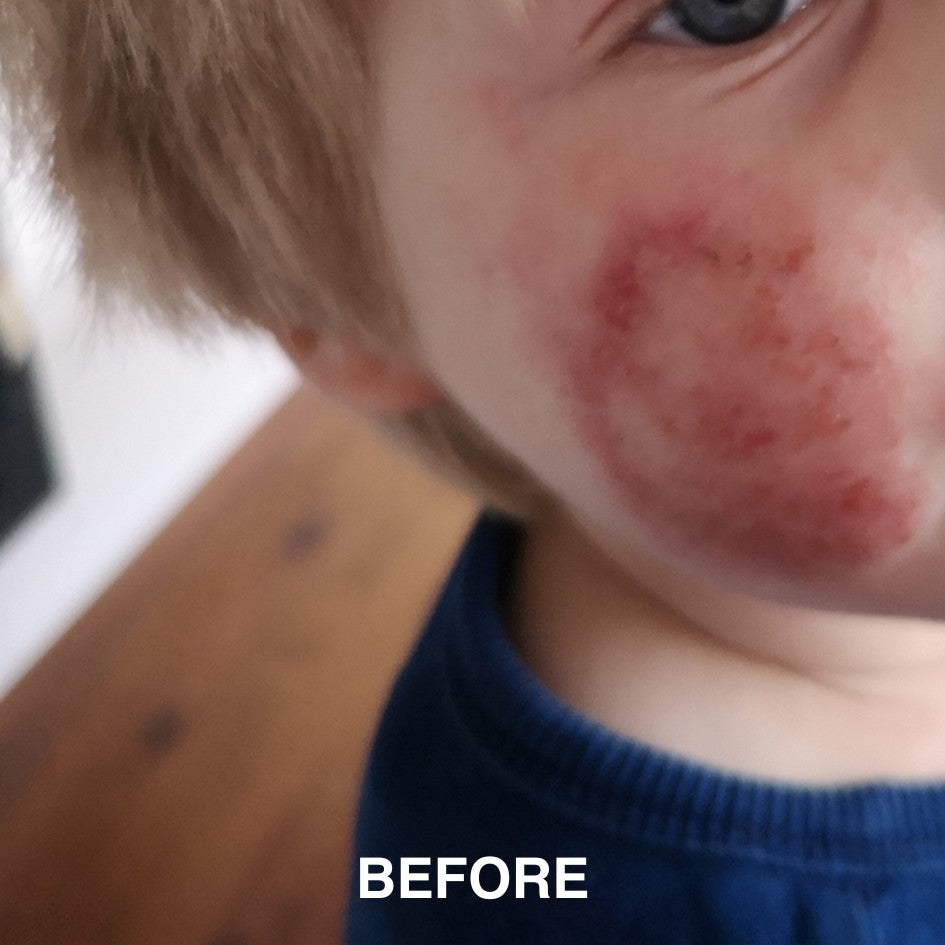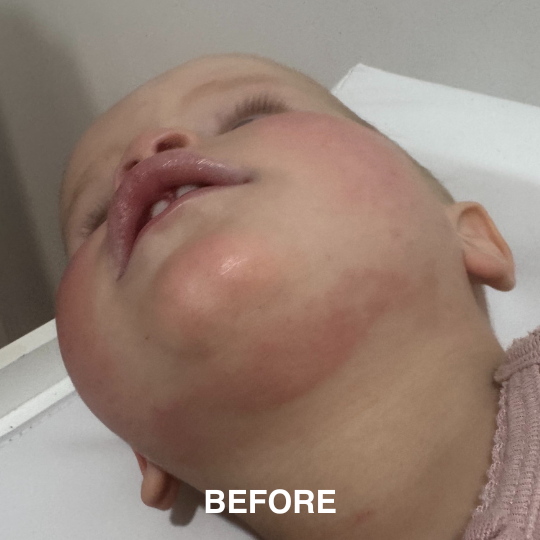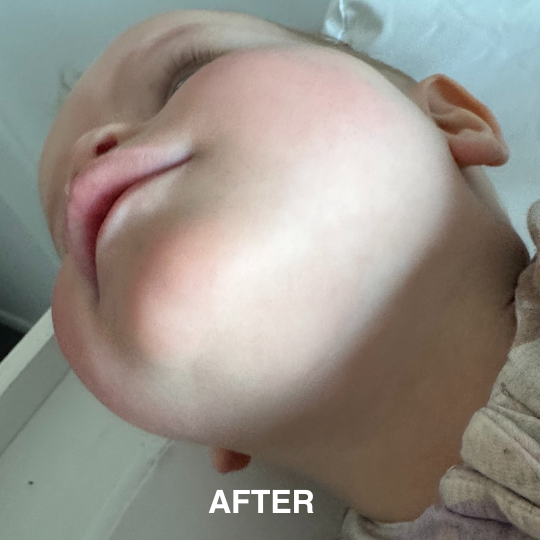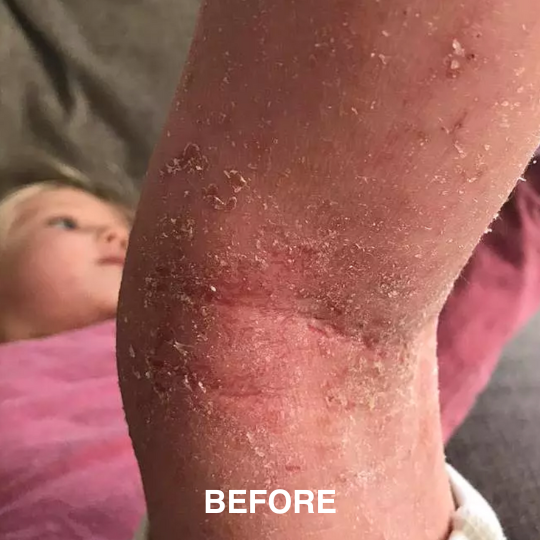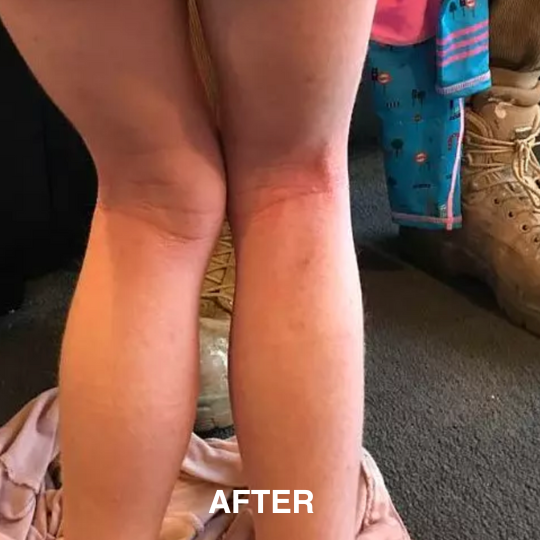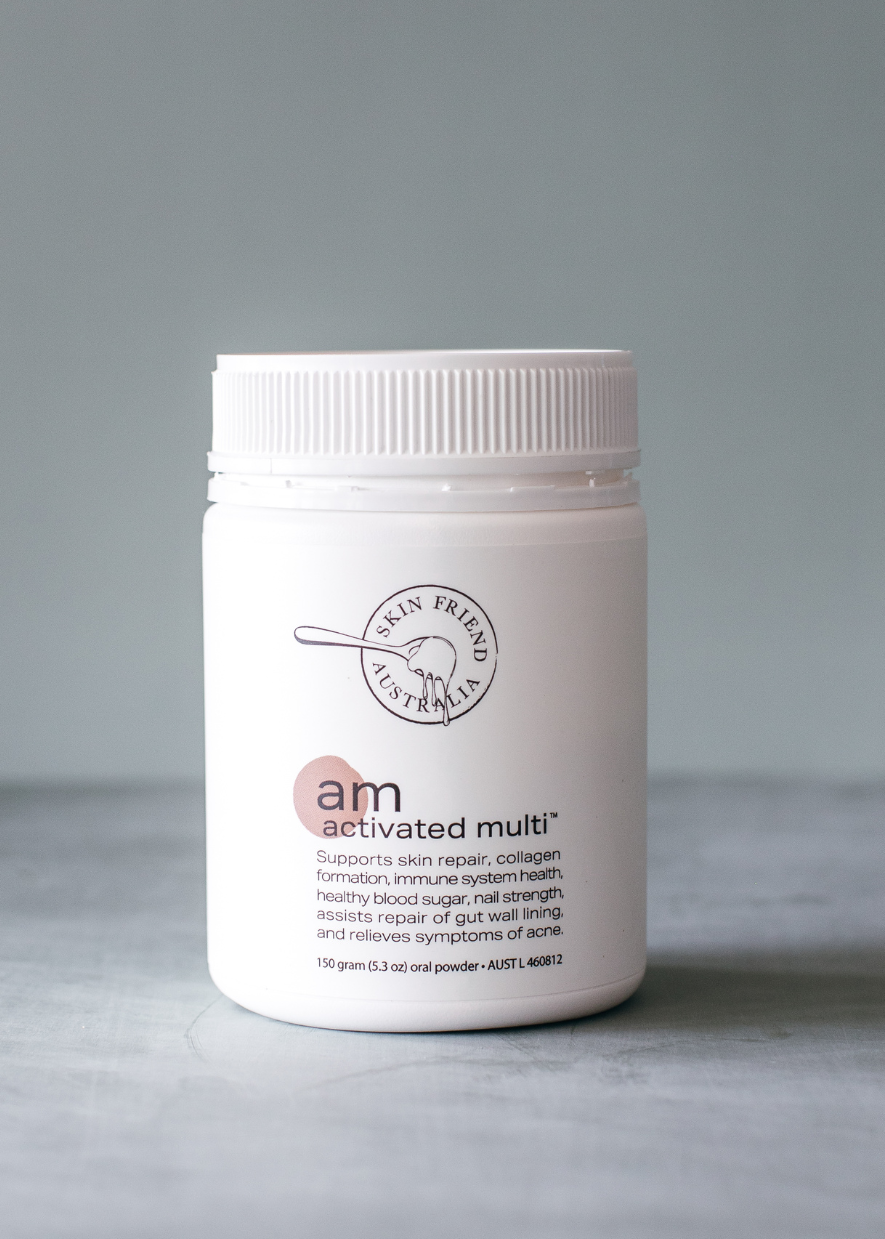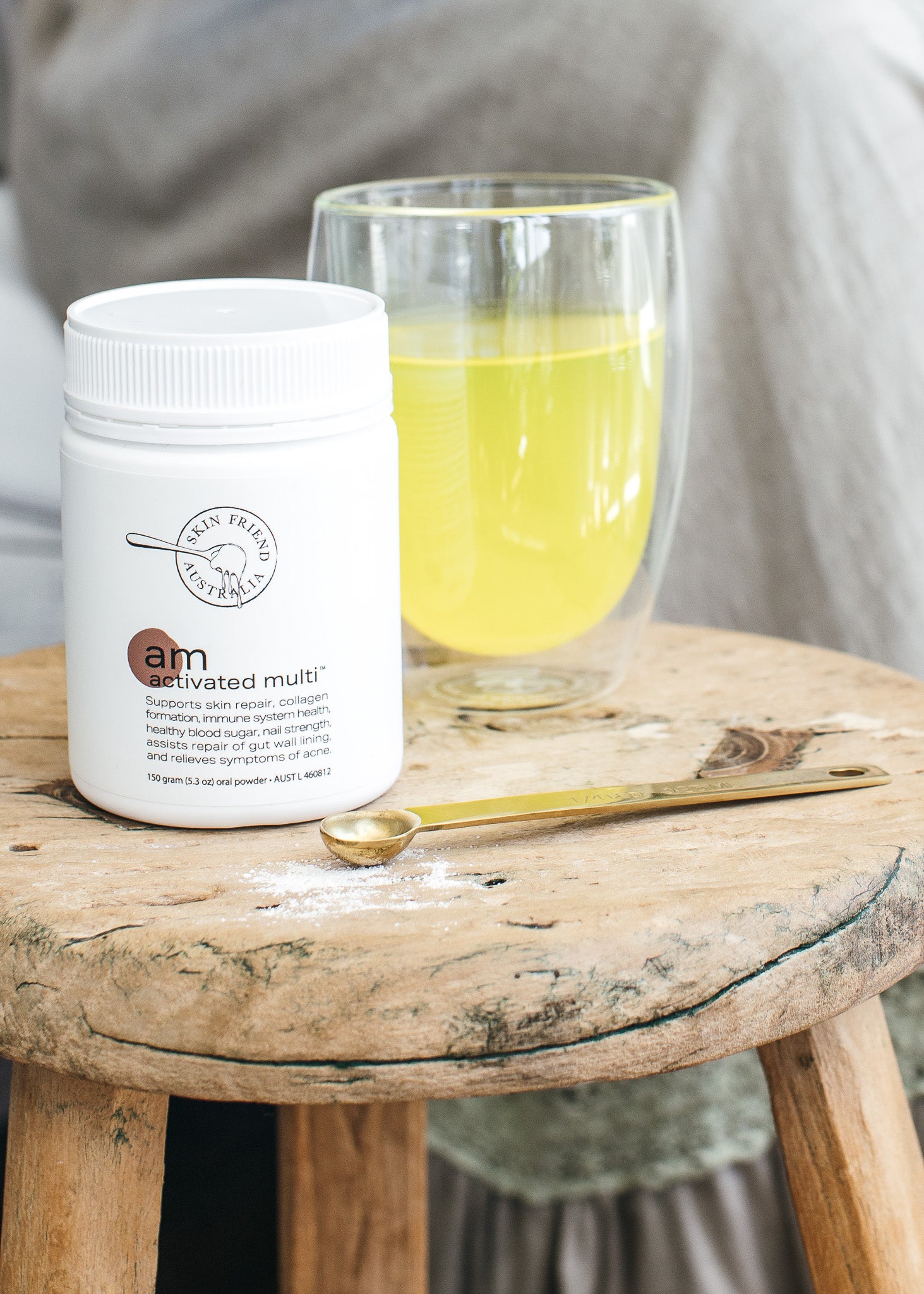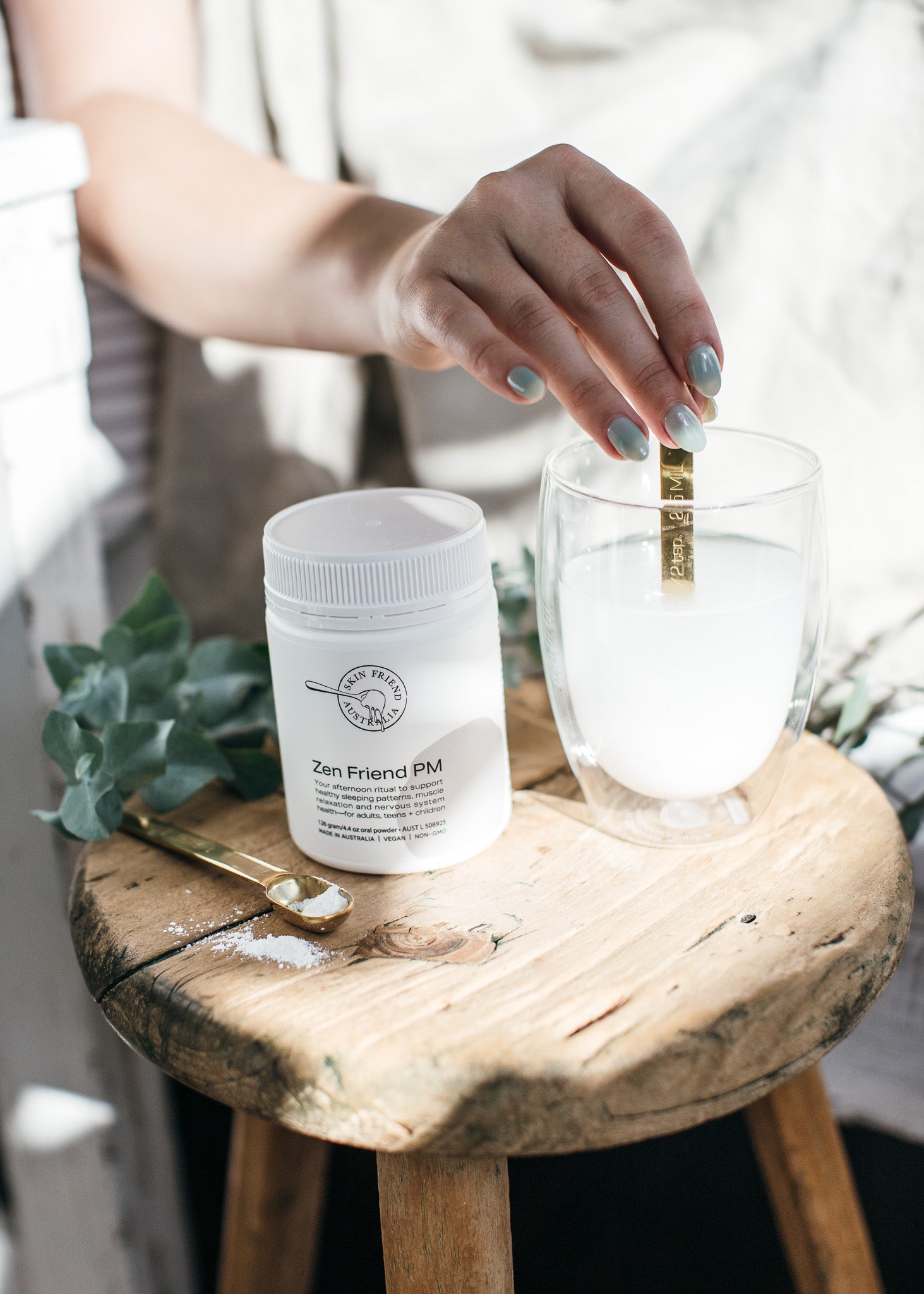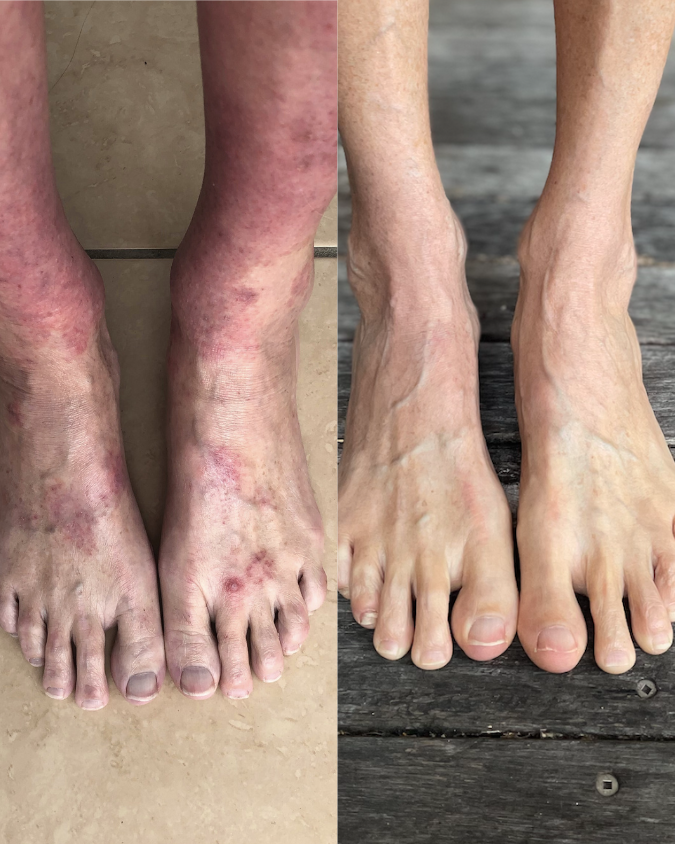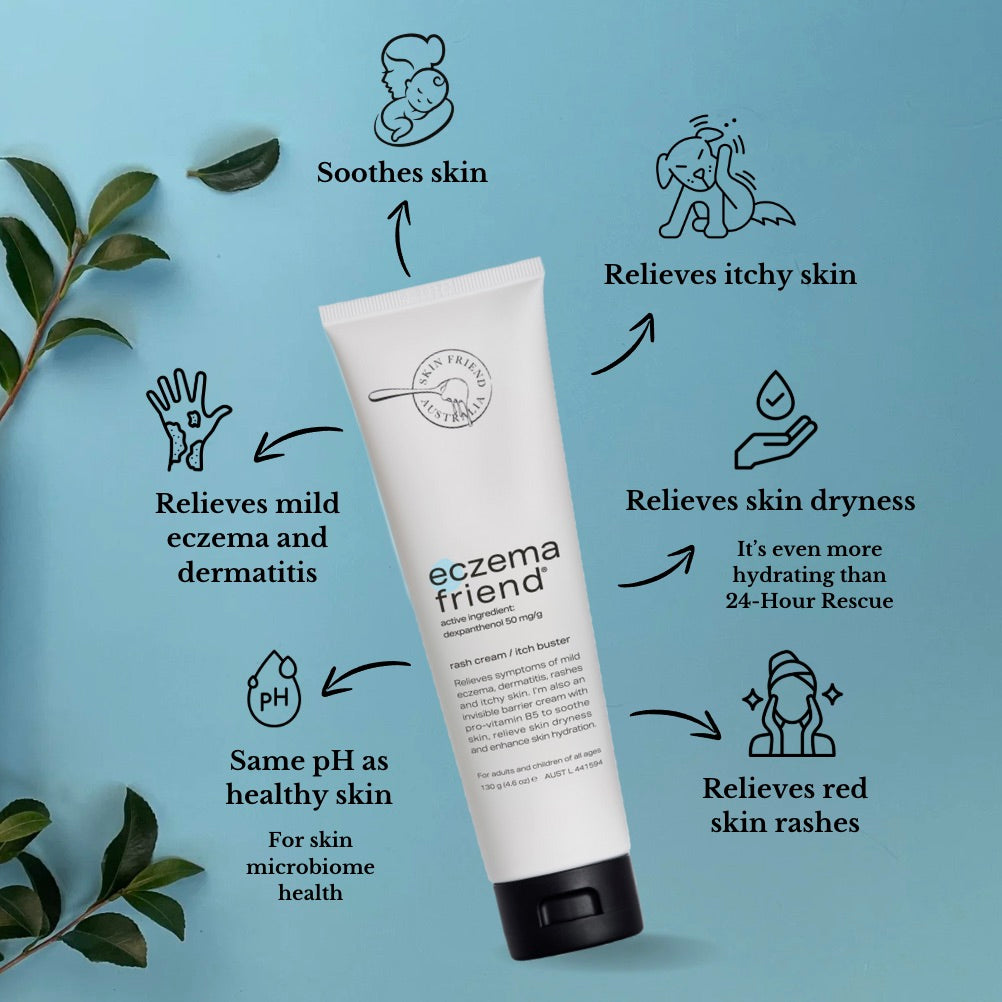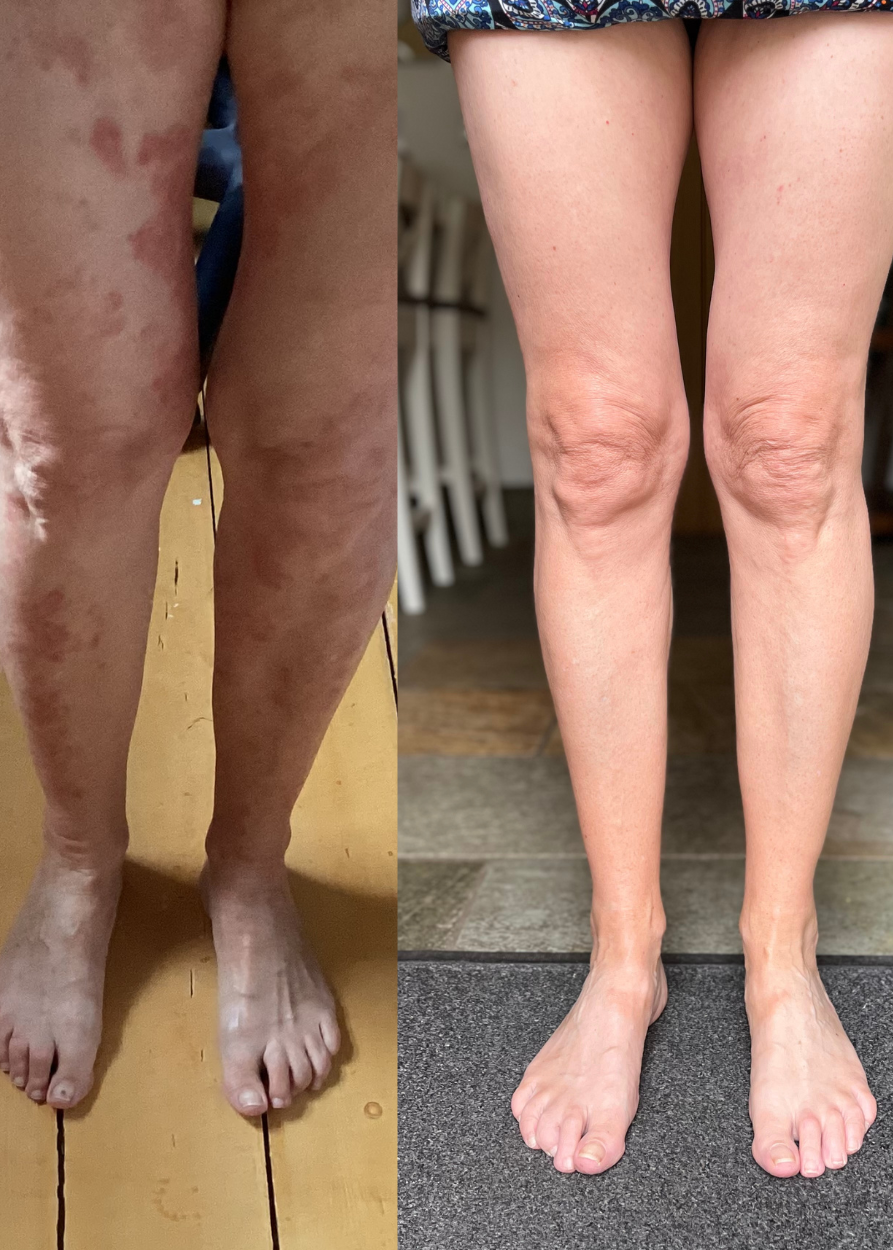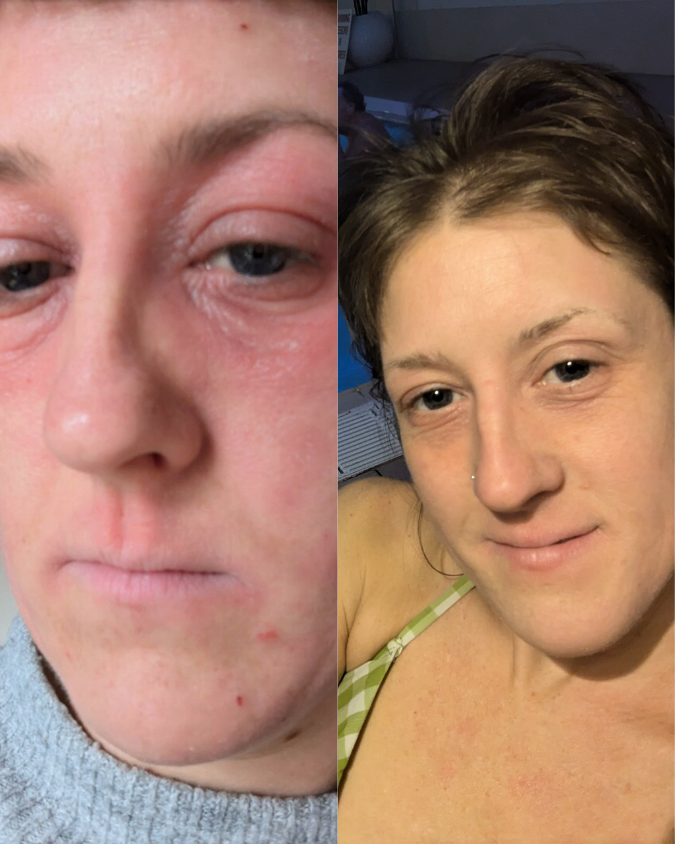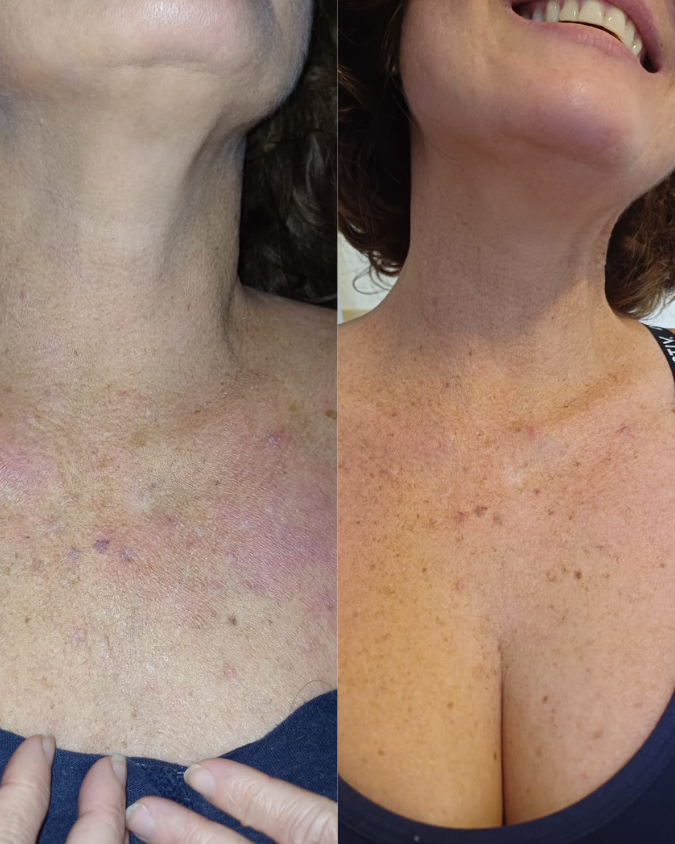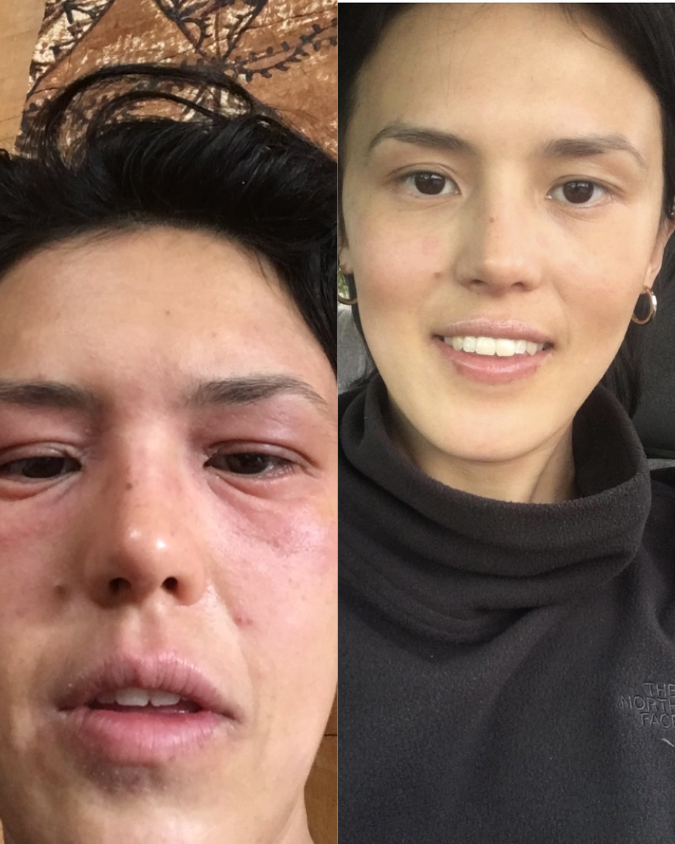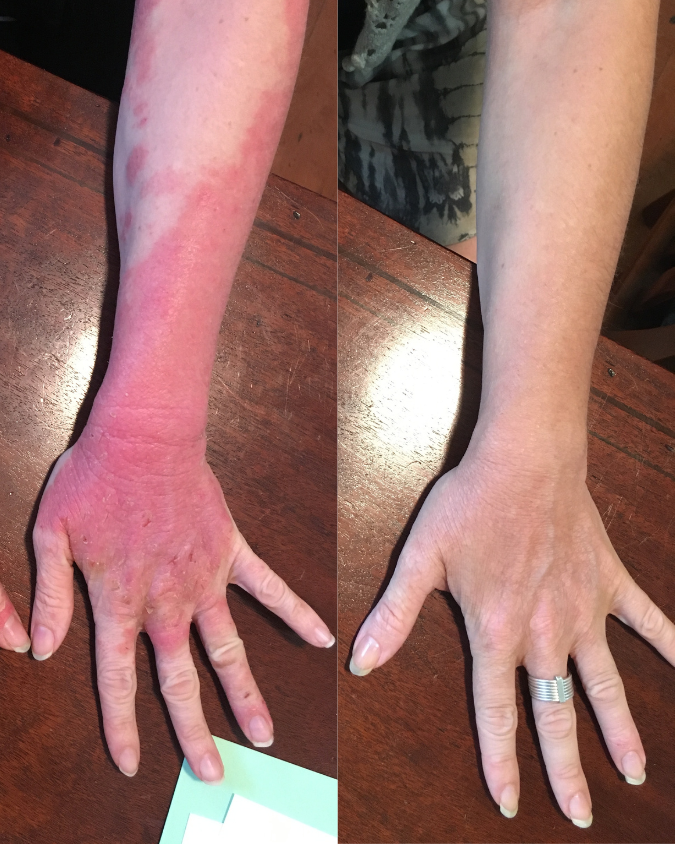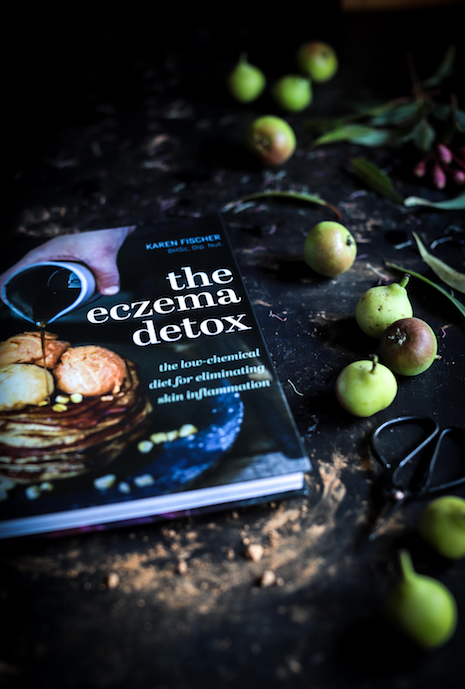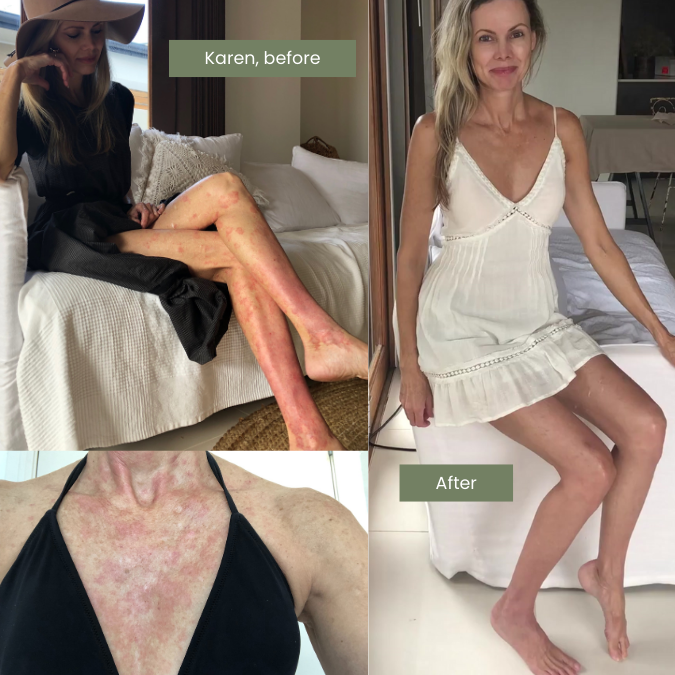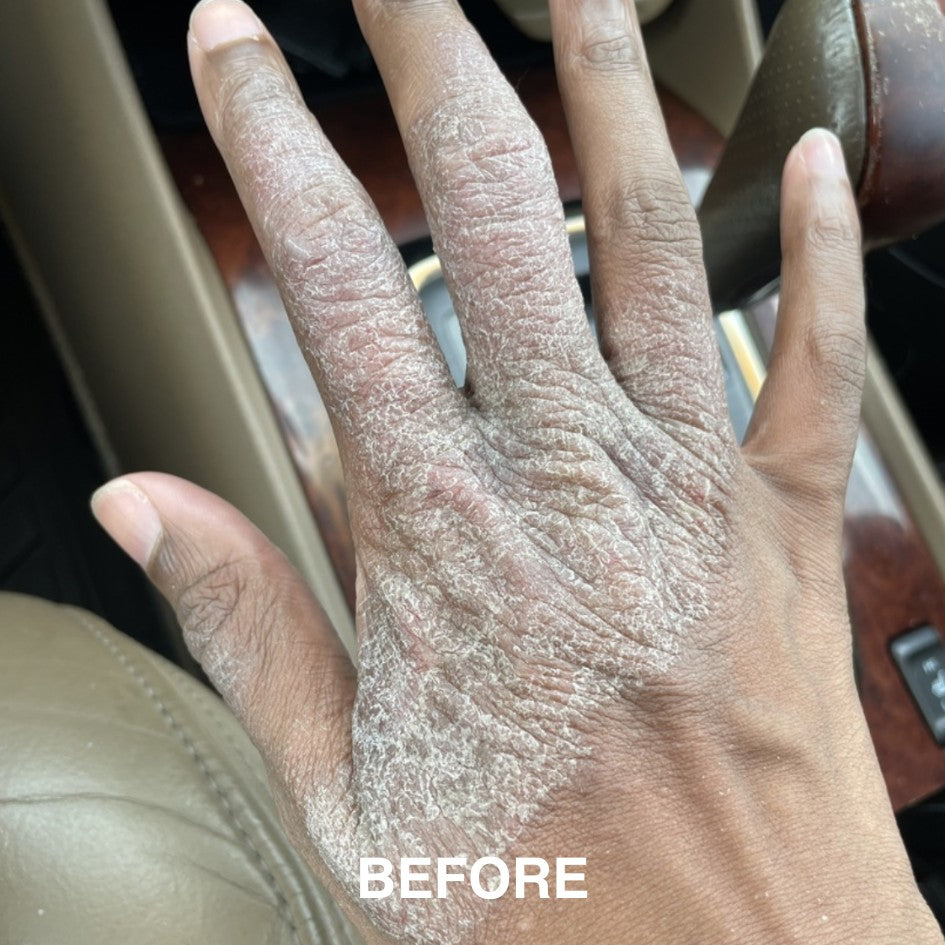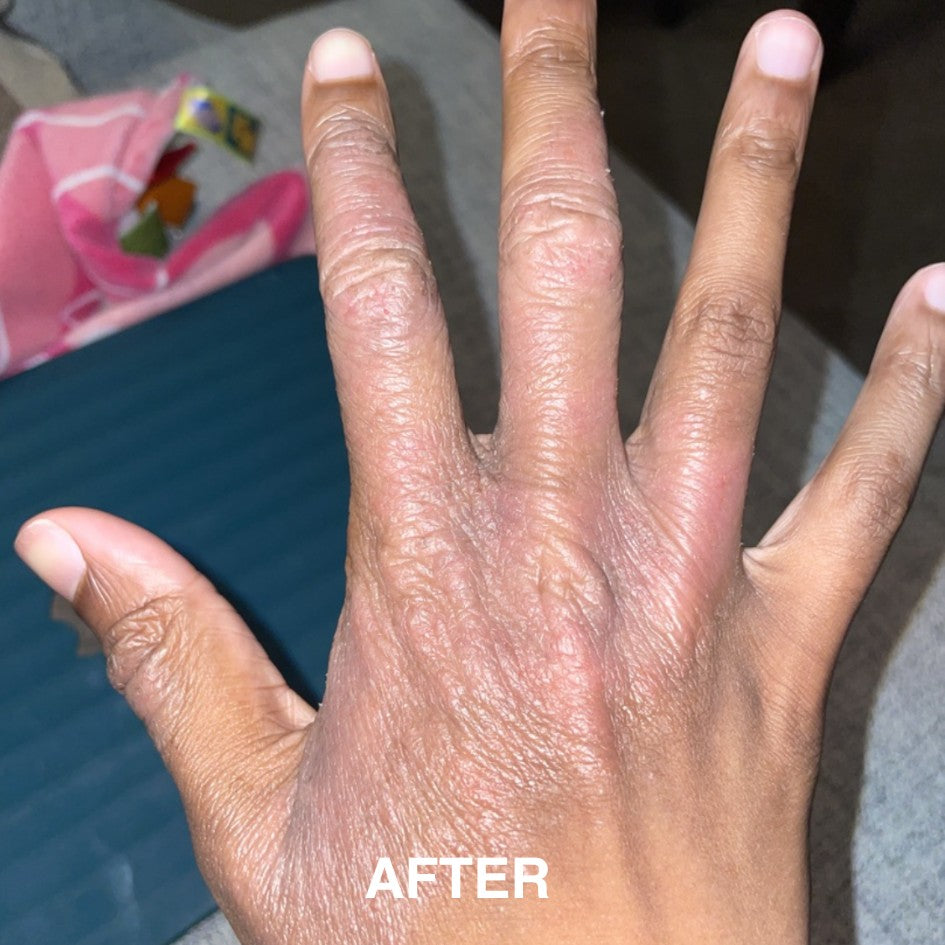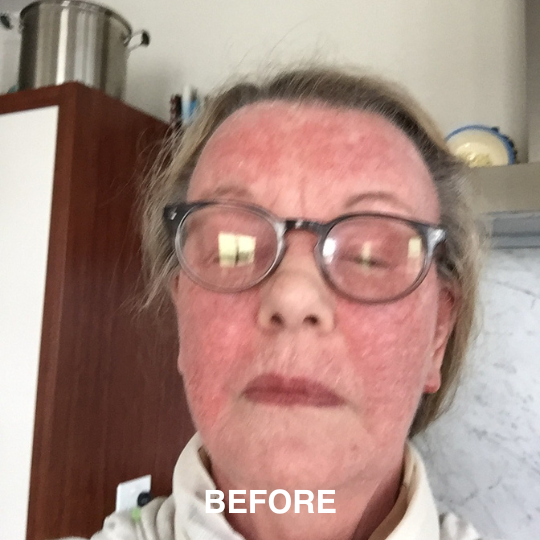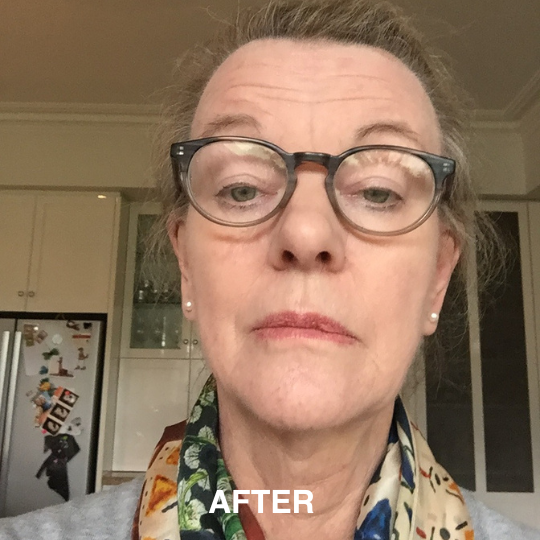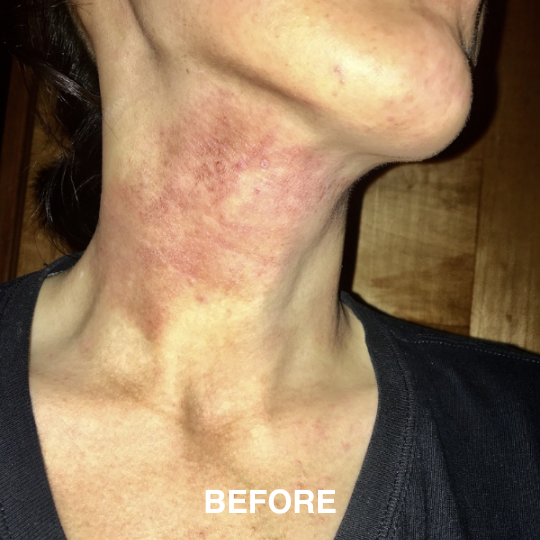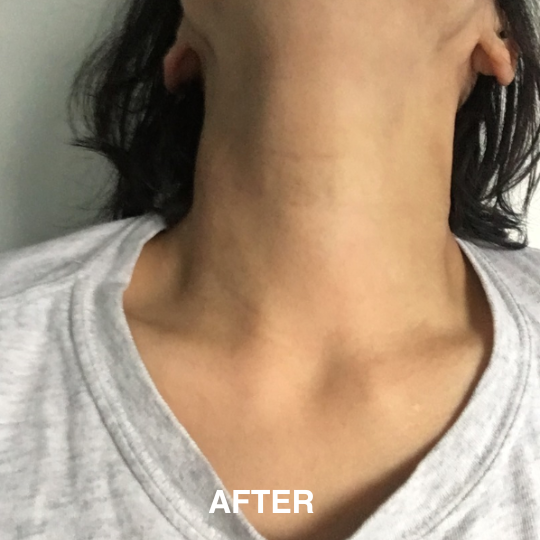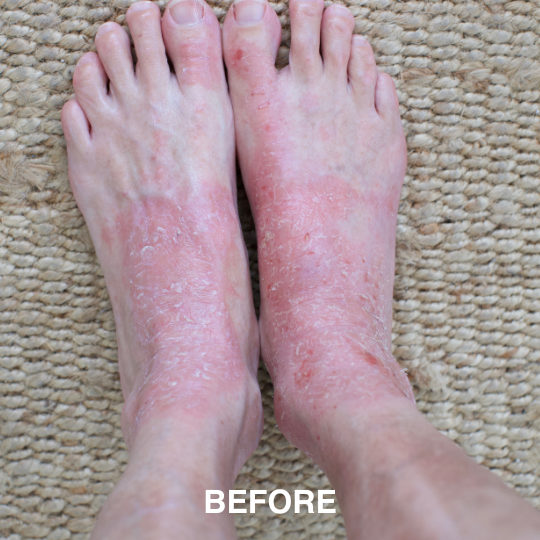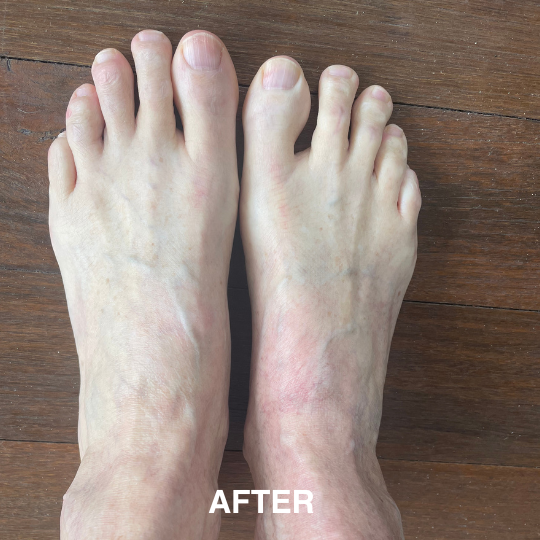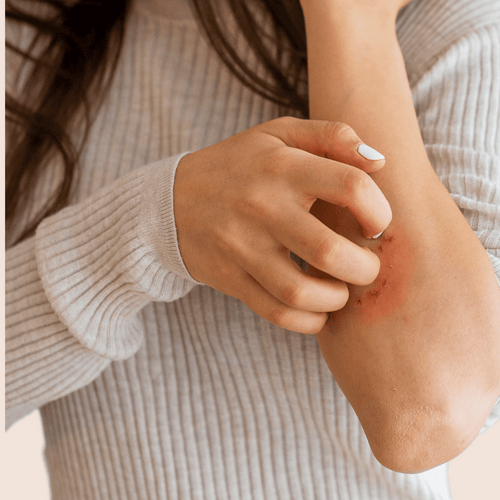Eczema and psoriasis are two of the most common skin conditions, but they can be tricky to tell apart. Both cause red, irritated skin and itching, but they have distinct triggers, symptoms and treatments. Knowing the difference is key to finding the right care for your skin.
Let’s explore the differences between atopic dermatitis/eczema vs psoriasis, their unique characteristics, and how to manage them effectively.
Blog by nutritionist Karen Fischer.
Eczema vs. Psoriasis: What’s the Difference?
At a Glance
-
Eczema (also known as Atopic Dermatitis):
Image: Eczema looks different on various skin tones, it is itchy and often flaky or weepy.
-
Psoriasis:
- Typically develops in adulthood but even babies can suffer with psoriasis, although it is less common than infant eczema.
- About 125 million people have psoriasis worldwide (Armstrong, 2020)
- An autoimmune condition that speeds up skin cell production (Ortiz-Lopez, 2022.
- Results in thick, scaly patches of skin that may appear silvery or red (Badri, 2025).]

Image: Psoriasis has a more raised appearance than eczema, it is scaly and often disc-like.
Symptoms of Eczema or Psoriasis
Eczema Symptoms
- Red, itchy skin: Often feels inflamed and may develop blisters, oozing and/or crusting (Silverberg, 2019). It is more itchy than regular skin rashes, which leads to poor sleep, and it can be painful (Silverberg, 2019).
- Dryness and cracking: The skin can become scaly and peel, especially during flare-ups.
- Common locations: Found on the hands, face, elbows, and knees. In children, symptoms often appear in the flexures (creases) of the elbows and knees.

Image L to R: Eczema is often scaly, eczema sometimes appears weepy, blisters can occur on the fingers and eczema is common in babies.
Psoriasis Symptoms
- Thick, scaly patches: These may appear as white or silvery scales on red skin (Bronckers, 2015).
- Raised plaques: The affected areas are often thicker and more defined than eczema.
- Common locations: Typically seen on the scalp, lower back, elbows, hands and knees.

Image L to R: Psoriasis often appears on the scalp, back, elbows, arms and knees.
Atopic Dermatitis (Eczema) vs. Psoriasis
Key Differences
- Triggers:
- Eczema is often triggered by environmental allergens like pollen or harsh skincare products, such as soap and ingredients such as sodium laureth sulfate and fragrance/parfum. It is also linked to asthma and food allergy (Silverberg, 2019).
- Eczema is TH2 dominant disease while psoriasis is TH1 dominant. This means they are linked to different immune system responses.
- Psoriasis is an autoimmune condition and can be worsened by stress, infections or cold weather.
- Psoriasis is linked with low calcium levels in the skin and it can be improved with calcium supplementation (Masson, 2021).
- Appearance:
- Eczema tends to look more red and inflamed.
- Psoriasis is marked by well-defined plaques and thicker, silvery scales.
- Itching:
- Eczema is more likely to cause intense itching.
- Psoriasis can itch but often comes with a burning or stinging sensation.
Treating Eczema vs Psoriasis
Caring for Eczema-Prone Skin
- Moisturise Regularly (AAAAI 2023): Natural eczema treatments include moisturising frequently. Keep your skin hydrated with creams like our Eczema Friend Rash Cream because it restores the skin barrier and relieves eczema and dermatitis.
- Avoid Triggers: Identify and avoid irritants like harsh soaps, fragrances and diagnosed food allergens.
- Support Skin Health: Use methylated (activated) skin supplements like our AM Activated Multi which is designed for eczema sufferers, to prevent nutritional deficiencies associated with skin rashes, reduce inflammation and strengthen the skin barrier.
Managing Psoriasis
-
Targeted Treatments: Prescription creams and our Eczema Friend Rash Cream, which relieves red skin and supports hydration to minimise flaky skin build-up.
-
Increase Calcium Intake: Psoriatic skin can be low in calcium so take pure calcium teamed with magnesium and vitamin K2, for enhanced calcium absorption, like our Skin Friend PM Mineral Matrix supplement which is designed to support skin health.
-
Reduce Inflammation: Lifestyle changes, like a balanced diet and stress reduction, can make a difference.
-
Support the Skin Barrier: Hydrate and protect the skin with thick, emollient-rich moisturisers such as Eczema Friend and Wonder Zinc.
Living with Eczema vs Psoriasis
Whether you’re dealing with eczema or psoriasis, finding the right care is essential for long-term relief. Products like our drug-free Eczema Friend Rash Cream, which received an innovation grant due to the unique formulation, are crafted to soothe irritated skin and reduce inflammation, making them a great option for sensitive skin needs. Eczema Friend is suitable for both eczema and psoriasis.
Plus take targeted skin supplements, such as Skin Friend AM and PM to prevent the nutritional deficiencies associated with skin disorders.
By understanding the differences between these conditions and choosing treatments tailored to your skin, you can take the first steps toward healthier, happier skin.
Shop the story
Click here for eczema products
Click here for psoriasis products

Image: Products for eczema and psoriasis including Wonder Zinc, Eczema Friend and the Eczema Detox Clear Skin Toolkit.
Click for references
Raharja A, Mahil SK, Barker JN. (2021). Psoriasis: a brief overview. Clin Med (Lond). 21(3):170-173. https://pubmed.ncbi.nlm.nih.gov/34001566/. PMID: 34001566; PMCID: PMC8140694.
Armstrong AW, Read C. (2020). Pathophysiology, Clinical Presentation, and Treatment of Psoriasis: A Review. JAMA. 323(19):1945-1960. DOI: 10.1001/jama.2020.4006. PMID: 32427307.
Ortiz-Lopez LI, et al. (2022). Updated Perspectives on Keratinocytes and Psoriasis. Psoriasis (Auckl). 12:73-87. https://pmc.ncbi.nlm.nih.gov/articles/PMC9075909/. PMID: 35529056; PMCID: PMC9075909.
Badri T, Kumar P, Oakley AM. (2023). Plaque Psoriasis. In: StatPearls [Internet]. Treasure Island (FL): StatPearls Publishing. https://www.ncbi.nlm.nih.gov/books/NBK430879/.
Kruse LL, Mancini AJ. (2024). Atopic Dermatitis in Children. Pediatr Ann. 53(4):e121-e128. https://pubmed.ncbi.nlm.nih.gov/38574071/. PMID: 38574071.
Kantor R, Silverberg JI. (2017). Environmental risk factors and their role in the management of atopic dermatitis. Expert Rev Clin Immunol. 13(1):15-26. https://pmc.ncbi.nlm.nih.gov/articles/PMC5216178/. PMID: 27417220; PMCID: PMC5216178.
Silverberg JI. (2019). Comorbidities and the impact of atopic dermatitis. Ann Allergy Asthma Immunol. 123(2):144-151. https://pubmed.ncbi.nlm.nih.gov/31034875/. PMID: 31034875.
Arents BWM, et al. (2023). The future is now: the Global Atopic Dermatitis Atlas (GADA). Br J Dermatol. 189(6):761-763. https://pubmed.ncbi.nlm.nih.gov/37566747/.
Bronckers IM, et al. (2015). Psoriasis in Children and Adolescents: Diagnosis, Management and Comorbidities. Paediatr Drugs. 17(5):373-384. DOI: 10.1007/s40272-015-0137-1. PMID: 26072040; PMCID: PMC4744260.
AAAAI/ACAAI JTF Atopic Dermatitis Guideline Panel, et al. (2024). Atopic dermatitis (eczema) guidelines: 2023 AAAAI/ACAAI Joint Task Force GRADE- and IOM-based recommendations. Ann Allergy Asthma Immunol. 132(3):274-312. DOI: 10.1016/j.anai.2023.11.009. PMID: 38108679.
Masson L, et al. (2021). A pustular psoriasis flare treated with calcium supplementation. JAAD Case Rep. 12:40-45. https://pubmed.ncbi.nlm.nih.gov/34026993/. PMID: 34026993; PMCID: PMC8122144.

Karen Fischer
Karen Fischer is a registered nutritionist, award-winning author, and skin health expert with over 20 years of experience. With a Bachelor of Health Science (BHSc) and ongoing PhD research in eczema, she developed science-backed, toxin-free solutions that have helped thousands. As the founder of Skin Friend, Karen formulates innovative skincare and supplements endorsed by doctors and dermatologists. She’s the author of seven health books, including The Healthy Skin Diet, The Eczema Detox and The Eczema Diet, and her research is set for publication in 2025. Featured in Marie Claire, Cosmopolitan, and Sky News, Karen is dedicated to helping people achieve healthy, resilient skin.








